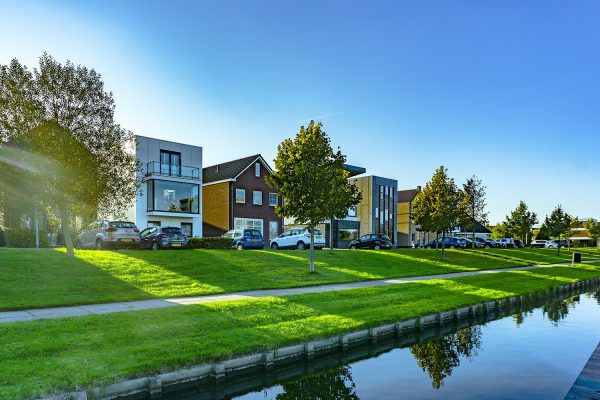
Few countries regulate housing more tightly than the Netherlands, yet politicians keep blaming “the market” when there isn’t enough (affordable) housing.
Housing minister Hugo de Jonge recently told Trouw that, “For too long, we believed the market would solve the problems on its own.”
In an op-ed for the same newspaper, I argue the opposite is true: government won’t leave the housing market alone.
High share of social housing
Start with the fact that one in three homes in the Netherlands are social houses for families who earn less than €45,000 per year. That’s the highest share of public or social housing in Europe!
For De Jonge, it’s still not enough. Currently the monthly rent in public housing is capped at €750. He wants to bring apartments with rents up to €1,000 per month under the social-housing regime: 400,000 properties.
This government is also raising property tax on landlords. Many cities, including Amsterdam, require owners to live in their properties or cap rents for new developments — or both. Subletting is usually illegal. Temporary rental contracts are limited to two years. Once a tenant has an indefinite contract, they’re almost impossible to evict except if they don’t pay their rent for several months.
All these regulations may be justified, but there are tradeoffs. Developers are discouraged from building rental properties, because the profit margin is low. Homeowners will think twice before renting out an empty room.
Rather than acknowledge these tradeoffs and debate if they’re worth it, De Jonge pretends they don’t exist.
Cohabitation is discouraged
Of the 8 million households in the Netherlands, 3 million consist of one person. If more Dutch people lived together, it would alleviate the country’s housing shortage, which ABF Research puts at 279,000.
But government policy discourages cohabitation:
- When retirees move in together, they lose a third of their combined pension.
- When children reach the age of 21, parents on welfare lose benefits.
- The city of Amsterdam requires a permit for sharing a flat with three or more people.
Every rule exists for a reason. Pensioners will have lower housing costs if they share a home rather than live separately. From the age of 21, the children of welfare recipients can be expected to contribute to the family income. In Amsterdam, inspectors found that landlords would sometimes crowd especially low-wage immigrants into small apartments.
But, again, there are tradeoffs. Of the 3 million single-person households, 1 million are pensioners. Young adults from the poorest families must find a home of their own on an already overheated market. In Amsterdam, the housing shortage is 50,000.
Building takes time
Then there’s policy that makes it harder to buy and build homes.
For the 1.1 million self-employed in the Netherlands (I’m one of them), it’s difficult to get a mortgage under income requirements that were tightened after the 2008-9 financial crisis.
It takes two years on average to get a building permit. The number of permits issued by municipalities has increased from a low of 25,000 in the wake of the financial crisis to around 70,000 in recent years, but it still takes an average of 15 months to build a home.
Since 2020, all new buildings must be energy-neutral. Which should help reduce greenhouse gas emissions — and residents save money on electricity and gas — but it also adds to the cost of each development.
I could go on. Dutch readers may be interested in my column for Wynia’s Week from April, in which I give more examples of (over)regulation. But it should be clear that blaming “the market” for the Netherlands’ housing crisis is, at best, an inadequate explanation.
